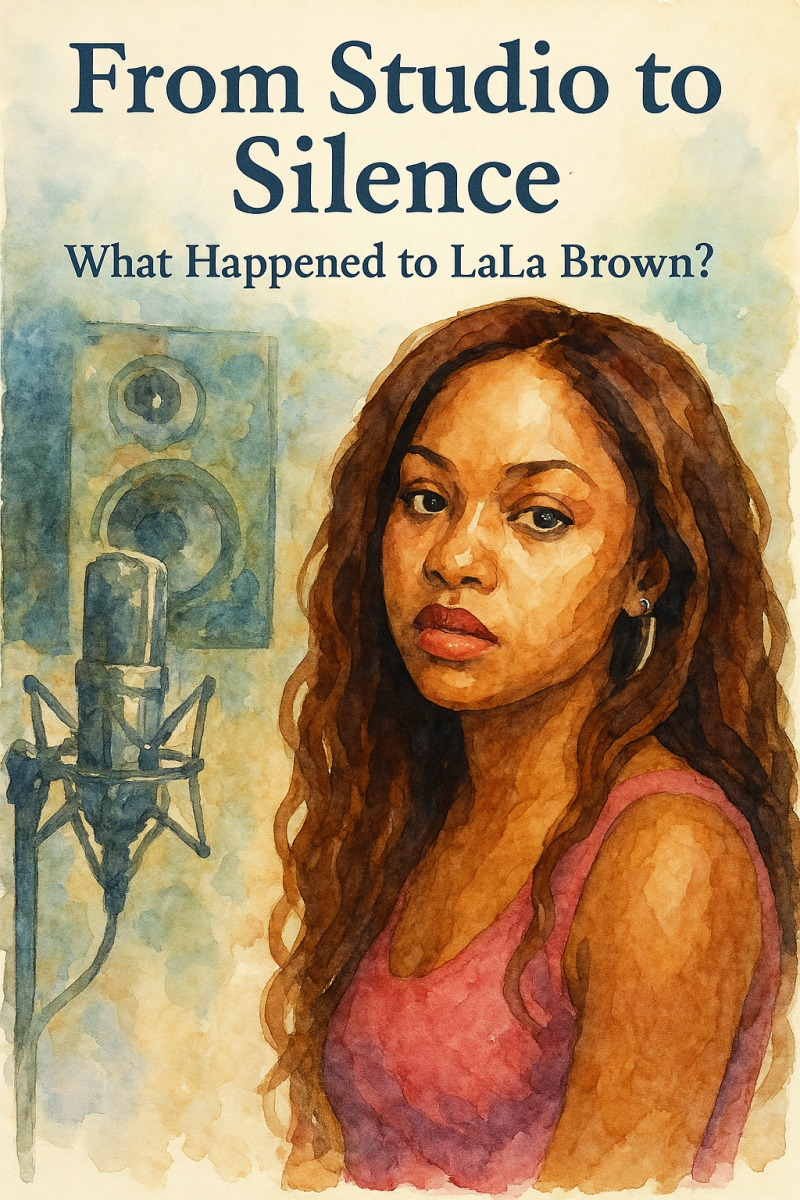
Yolanda Rose “LaLa” Brown had a voice that shimmered with promise. A Milwaukee native with dreams larger than her zip code, she was on the brink of making it big when her life was tragically cut short. What happened to LaLa was not just the loss of a rising star—it was a brutal reminder of how often the voices of Black and Brown women are silenced, ignored, and left without justice.
A Star on the Rise
Born on May 20, 1986, LaLa grew up with a rich cultural background—African American on her father’s side, Mexican on her mother’s. She began singing at age 11, captivating audiences at weddings and community events around Milwaukee. But music wasn’t just a hobby—it was her lifeline.
Despite becoming a mother at just 16, she remained determined. LaLa attended the Milwaukee High School of the Arts, honing her craft and staying focused on her career while raising her daughter.
Her big break came in 2006, when she featured on Lyfe Jennings’ hit song “S.E.X.” The track climbed the Billboard Hot 100 and became an anthem that addressed teenage pressures with nuance and care. It proved LaLa had star power. She wasn’t just background vocals—she was someone to watch.
The Return to Milwaukee
After touring and spending time in Atlanta recording music, LaLa returned home to Milwaukee in 2007 to begin work on her own album. She collaborated with her boyfriend and producer, JeTannue “Kool Aid” Clayborn, in a studio he operated on Lisbon Avenue.
Those who knew her said she was on the verge of something big—negotiating her first solo project, gaining fans, and staying connected with her daughter. But there were shadows too. LaLa had allegedly been receiving threats in the weeks leading up to her death. She didn’t reveal much, but those close to her say she was scared.
The Murders
On October 19, 2007, both LaLa and Kool Aid were found shot to death inside his recording studio. Investigators believed they had been killed several days earlier.
The scene was disturbing. The studio had been ransacked, expensive equipment had been stolen, and the building had signs of forced entry. Yet despite the physical evidence, the case quickly began to go cold.
The motive has never been officially confirmed. Robbery? Jealousy? Something personal? So many questions have hung in the air for almost two decades.
A Cold Case with No Closure
Years passed, and little progress was made. In 2010, Milwaukee police said they had a person of interest but no charges were filed. By 2016, the case was turned over to the Milwaukee County District Attorney’s Office, but again—nothing. No trial. No justice. No answers.
LaLa’s father, George Brown, has been an outspoken advocate ever since. He’s held press conferences, written to officials, and begged the public not to forget his daughter. Her daughter, now a young woman herself, continues to grow up with grief and uncertainty—carrying a legacy of pain.
The public rarely hears about LaLa’s case anymore. It never got the Netflix docuseries treatment. It didn’t spark national outrage like some other high-profile deaths. But that doesn’t mean it deserves to be forgotten.
A Voice That Deserved to Be Heard
LaLa Brown was more than a tragic headline. She was a mother, an artist, and a dreamer. She stood at the edge of something beautiful—and it was stolen from her. So often, the world only pays attention when a story is loud, messy, or wrapped in sensationalism. But LaLa’s story is quiet in the way heartbreak is quiet—deep, aching, and unresolved.
What she could have become—the songs she never got to release, the stages she never stood on—those are losses that can’t be measured.
Conclusion: A Case That Still Cries Out for Justice
LaLa Brown’s murder remains a wound that has never healed — for her family, her fans, and for a world that never got to see the full potential of her voice. While theories swirl around the circumstances of her death, from personal betrayal to professional jealousy, none have brought resolution. No one has been held accountable.
Her story is a devastating example of how quickly society can forget a young Black woman, even one with immense talent and a growing platform. The lack of justice is not just a failure of law enforcement, but of media, of culture, of all the systems that claim to protect but often fall silent when it matters most.
The truth is out there — someone knows what happened on that October night in Milwaukee. Until that truth is spoken aloud and justice is served, LaLa Brown’s name must continue to be said, written, and remembered. Her life mattered. And her story is far from over.
Personal Reflection
As a Pakistani woman, I’m not surprised that LaLa Brown’s story has been largely forgotten. It hurts to say that. But it’s a reflection of how society treats Black women—especially Black women who don’t get the chance to become mainstream success stories. If this had happened to a white pop star on the rise, I truly believe the headlines would have never stopped. There would have been documentaries. A Netflix special. Podcasts breaking down every moment. Vigils. Justice. Noise.
But LaLa? She was a young, talented Black woman from Milwaukee. She was a mother. She was ambitious. And she was killed in a senseless act of violence—only to be tucked away in the cold case files like her life was a footnote.
As a woman of color, I know that kind of erasure all too well. We’re either invisible or reduced to our pain. LaLa had so much more to offer than just the tragedy of her death. She had a voice—one that could’ve changed the game. And the fact that her story hasn’t been honored the way it deserves makes me angry. It makes me want to write about her. Say her name. Make sure others know what was taken.
Because she mattered. And she still matters.
Add comment
Comments